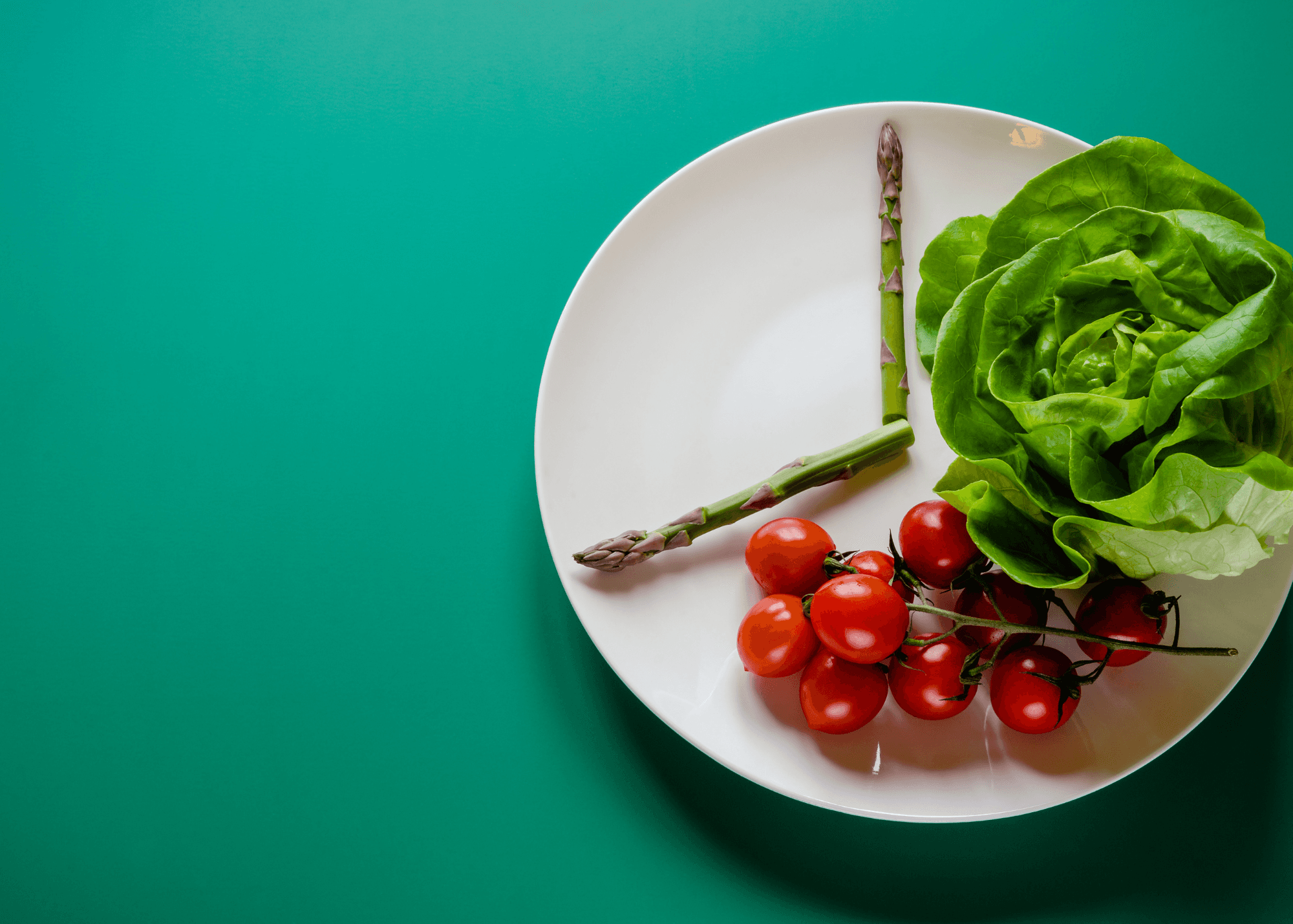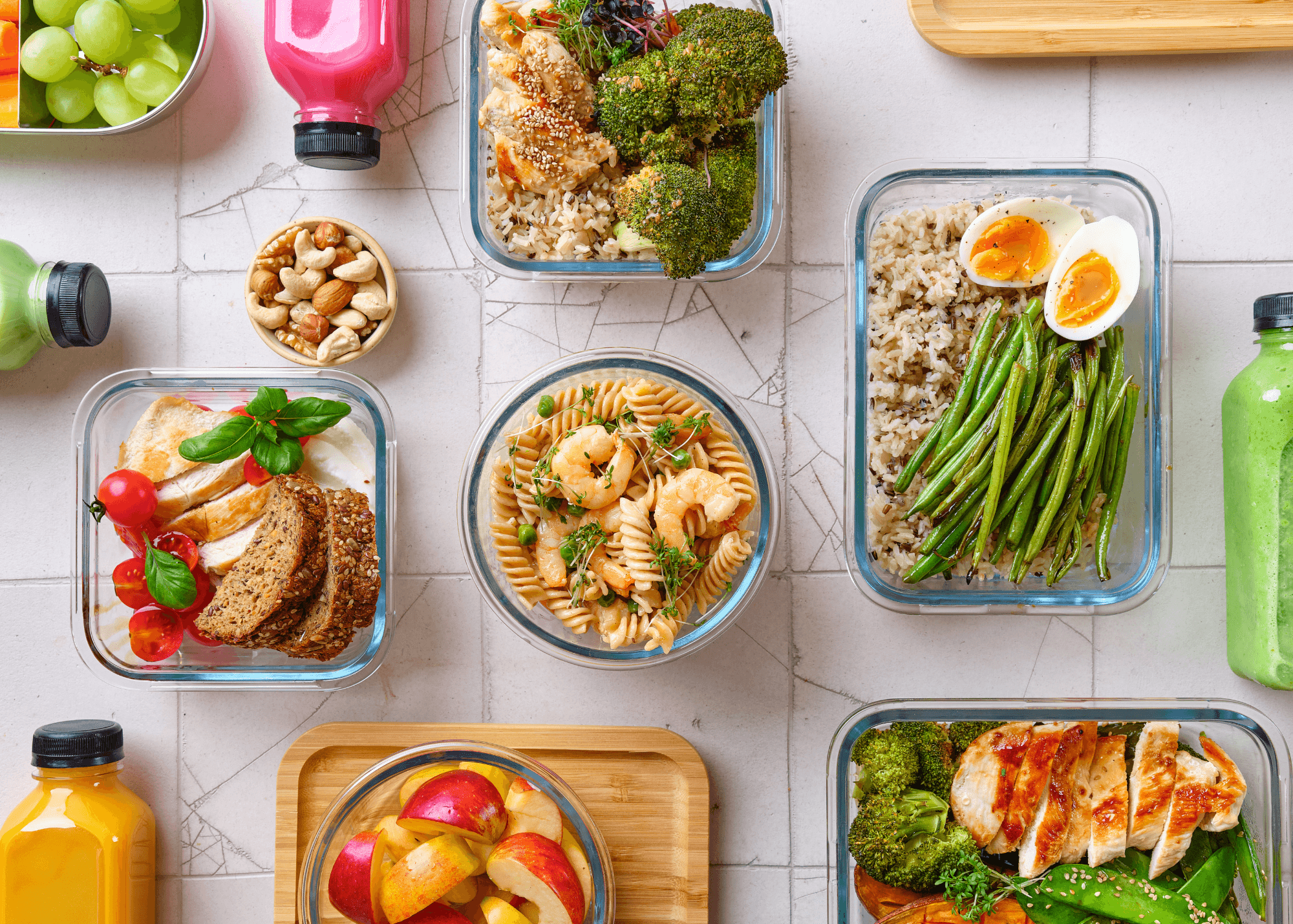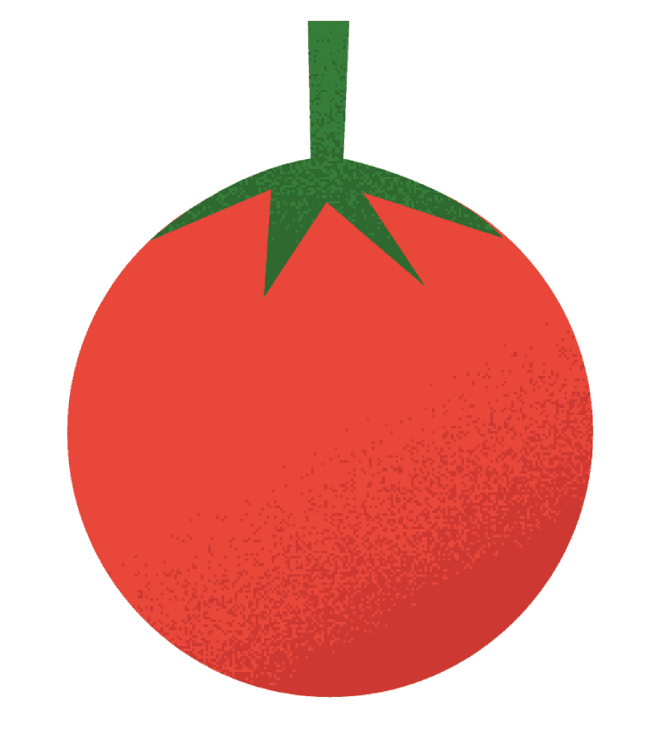Author:
Clinically Reviewed By:
At Berry Street, we’ve worked with countless individuals who want to lose weight while sticking to a vegetarian lifestyle, and we know how frustrating it can be when progress stalls. That’s why we created a clear, no-fuss vegetarian diet plan to help make things easier and more sustainable.
In this article, we’ll break down exactly what a vegetarian diet is, how it can support weight loss, and offer a full 7-day meal plan to get started.
We'll also cover the benefits, common mistakes to avoid, and share practical food lists and weight loss tips—all backed by experience and insights from Registered Dietitians. Whether you're new to plant-based eating or looking to reset your routine, there's something here for everyone.
What Is A Vegetarian Diet?
A vegetarian diet excludes meat, fish, and poultry, focusing instead on plant-based foods such as fruits, vegetables, dairy, legumes, nuts, seeds, and whole grains. According to our research, this diet is associated with numerous health benefits, including a reduced risk of chronic diseases like heart disease, diabetes, and certain cancers.
7-Day Vegetarian Diet Plan For Weight Loss
After putting it to the test, we've crafted a 7-day vegetarian meal plan to kickstart your weight loss journey. Each day includes balanced meals to keep you satisfied and energized.
Day 1
Breakfast: Greek Yogurt Parfait With Mixed Berries And Granola
This protein-packed parfait supports muscle maintenance and keeps hunger at bay. Layer Greek yogurt with fresh mixed berries and a spoonful of granola. It's ready in under 5 minutes, is fantastic for gut health, and is loaded with antioxidants.

Snack: Almonds And Fruit
A handful of almonds and a piece of fruit like an apple or banana offer the perfect mix of healthy fats, fiber, and natural sugars. No prep is needed—just grab and go. It’s a simple way to stay full between meals and works for a vegan meal plan as well.
Lunch: Quinoa And Black Bean Salad
This dish delivers a complete plant-based protein and is rich in fiber. Toss cooked quinoa with black beans, chopped veggies, and a citrus vinaigrette. It’s light, refreshing, and keeps your energy levels stable.
Dinner: Stir-Fried Tofu With Mixed Vegetables Over Brown Rice
Packed with protein, vitamins, and minerals, this dinner fuels recovery and promotes fullness. Sauté tofu until golden, add chopped veggies, and serve over steamed brown rice. Season with low-sodium soy sauce or tamari.
Day 2
Breakfast: Overnight Oats With Chia Seeds And Bananas
This meal is rich in fiber and omega-3s. Mix rolled oats with almond or soy milk, chia seeds, and a touch of maple syrup. Option to add Greek yogurt or plant based protein powder for additional protein. Let it soak overnight, then top with banana slices in the morning. Quick, creamy, and satisfying.
Snack: Carrot Sticks With Hummus
Crunchy and creamy, this combo is ideal for curbing midday cravings. Peel and chop fresh carrots, and dip them in protein-rich hummus. It’s easy to prep in batches ahead of time.
Lunch: Spinach And Feta Stuffed Whole Wheat Pita
This meal is rich in calcium and iron. Fill a whole wheat pita with sautéed spinach, crumbled feta, and chopped tomatoes. Warm it slightly before serving. Great for a quick, nutrient-dense lunch.
Dinner: Lentil Soup With Whole Grain Bread
Lentils are high in protein and fiber, keeping you full longer, and are perfect if you’re looking for an option that fits a vegan meal plan for weight loss.

Simmer lentils with diced veggies and spices for a hearty soup. Serve with a slice of whole-grain bread for added texture and satiety.
Day 3
Breakfast: Spinach Berry Protein Smoothie
This smoothie offers a nutrient boost with minimal effort. Blend spinach, frozen berries, plant-based protein powder, and flaxseeds with almond milk. It’s rich in fiber and antioxidants.
Snack: Greek Yogurt With Honey And Walnuts
A quick snack that’s sweet and satisfying. Top Greek yogurt with a drizzle of honey and a few chopped walnuts. It delivers protein, healthy fats, and a touch of natural sugar.
Lunch: Chickpea And Vegetable Stir-Fry Over Quinoa
Packed with protein and fiber, this stir-fry is filling without being heavy. Sauté chickpeas with your favorite vegetables and serve over quinoa. Add garlic and herbs for flavor.
Dinner: Eggplant And Zucchini Lasagna
This veggie lasagna is low in carbs but rich in flavor. Layer grilled eggplant and zucchini with ricotta and marinara sauce. Bake until bubbly and golden. Serve with a side salad.
Day 4
Breakfast: Avocado Toast With Poached Eggs
Avocado provides healthy fats, while eggs supply complete protein. Toast whole grain bread, mash avocado on top, and finish with a poached egg. Add a sprinkle of chili flakes for a kick.
Snack: Mixed Nuts
Mixed nuts offer healthy fats and a satisfying crunch. Portion out a small handful to prevent overeating. They're easy to carry and require zero prep.
Lunch: Mediterranean Couscous Salad
This salad is fresh, tangy, and filling. Combine cooked couscous with cherry tomatoes, cucumbers, olives, and feta. Dress with olive oil and lemon juice. Serve chilled or at room temp.

Dinner: Stuffed Bell Peppers with Black Beans and Corn
A colorful and fiber-rich dish. Fill halved bell peppers with a mix of black beans, corn, brown rice, and spices. Bake until the peppers are tender. A complete and satisfying meal.
Day 5
Breakfast: Chia Pudding With Mango
Chia seeds expand in liquid, creating a pudding-like texture full of fiber and omega-3s. Mix with almond milk and refrigerate overnight. Top with fresh mango in the morning for natural sweetness.
Snack: Edamame With Sea Salt
Edamame is a plant-based protein powerhouse. Boil or steam and sprinkle with a pinch of sea salt. Perfect for snacking or adding to salads.
Lunch: Grilled Veggie And Hummus Wrap
Grilled veggies and hummus make for a hearty, nutrient-rich lunch. Use a whole-grain wrap and fill it with zucchini, peppers, and eggplant. Add a spoonful of hummus and roll it up.
Dinner: Mushroom Risotto
Arborio rice gives this risotto its creamy texture. Sauté mushrooms with onions, add rice and slowly stir in vegetable broth. Finish with a sprinkle of Parmesan. Rich in umami and fiber.
Day 6
Breakfast: Whole Wheat Pancakes With Berries
Whole wheat pancakes offer sustained energy. Mix whole wheat flour, almond milk, and baking powder, then cook on a griddle. Top with fresh berries and a spoonful of Greek yogurt.
Snack: Cottage Cheese With Peaches
This snack balances protein and sweetness. Scoop cottage cheese into a bowl and top with fresh peach slices. It’s light, refreshing, and easy to assemble.

Lunch: Peanut Tofu Salad
This salad is crunchy, savory, and satisfying. Toss mixed greens, shredded carrots, and crispy tofu with a homemade peanut dressing. It’s full of flavor and high in protein.
Dinner: Spaghetti Squash With Marinara
Low in carbs and high in fiber, spaghetti squash is a great pasta alternative. Roast the squash, scrape out strands, and top with marinara. Add garlic bread on the side for comfort.
Day 7
Breakfast: Smoothie Bowl With Granola And Banana
This bowl is fun to make and packed with nutrients. Blend frozen fruit into a thick smoothie, pour into a bowl, and top with granola, banana slices, and chia seeds. Cool, colorful, and satisfying.
Snack: Trail Mix
Trail mix offers quick energy and crunch. Mix nuts, seeds, and dried fruit in a small container. Make a big batch and portion it out for the week.
Lunch: Caprese Salad With Balsamic Glaze
Fresh and light, this salad combines mozzarella, tomatoes, and basil. Drizzle with balsamic glaze for tang. It’s easy to assemble and works well on busy days.
Dinner: Vegetarian Chili With Cornbread
Hearty and comforting, this chili is rich in protein and fiber. Simmer beans, tomatoes, peppers, and spices in one pot. Serve with warm cornbread for a filling finish to your week.

Benefits Of Following A Vegetarian Diet Plan
Switching to a vegetarian diet can bring a range of health benefits beyond just weight loss. From our experience, a well-balanced vegetarian diet supports overall wellness and provides essential nutrients your body needs to thrive.
Weight Loss: A vegetarian diet is naturally high in fiber and low in calories, promoting satiety and aiding in weight management.
Heart Health: Emphasizing plant-based foods can lower cholesterol levels and reduce the risk of heart disease.
Improved Digestion: High fiber intake supports a healthy digestive system and regular bowel movements.
Reduced Risk of Chronic Diseases: A vegetarian diet is linked to a decreased risk of type 2 diabetes and certain cancers.
Mistakes To Avoid On A Vegetarian Diet
Even with the best intentions, it’s easy to fall into certain habits that can stall your progress. According to our research, these are the most common mistakes to watch for—and how to stay on track:
Overloading Processed Foods: Not all vegetarian foods are healthy. Avoid excessive consumption of processed meat substitutes and other ultra-processed foods.
Skimping On Protein: Ensure you're getting enough protein from sources like legumes, tofu, and dairy products.
Ignoring Nutrient Deficiencies: Pay attention to nutrients like vitamin B12, iron, and omega-3 fatty acids, which may require supplementation or careful planning.
Overeating High-Calorie Foods: Nuts, seeds, and cheeses are nutritious but can be calorie-dense. Monitor portion sizes to avoid consuming excess calories.
If you're feeling unsure about how to balance your meals or want expert feedback, connect with a Registered Vegetarian Dietitian through Berry Street. We’ll help you build a personalized 7-day meal plan that aligns with your goals and lifestyle, whether you’re following a vegetarian diet or a raw vegan meal plan.

Foods To Eat On A Vegetarian Diet For Weight Loss
Choosing the right foods is key to making a vegetarian diet effective for weight loss. From our experience, these staples can help you feel full, fueled, and satisfied while supporting your goals:
Legumes: Lentils, chickpeas, black beans.
Whole Grains: Quinoa, brown rice, oats.
Vegetables: Leafy greens, broccoli, bell peppers.
Fruits: Berries, apples, oranges.
Nuts And Seeds: Almonds, chia seeds, flaxseeds.
Dairy and Alternatives: Greek yogurt, cottage cheese, fortified plant-based milks.
Foods To Avoid On A Vegetarian Diet For Weight Loss
Not all vegetarian foods are created equal. Some can sneak in extra calories or sugar that slow down progress. Here’s what to skip or enjoy only in moderation:
Sugary Beverages: Sodas, sweetened teas, and juices.
Refined Carbohydrates: White bread, pastries, and other processed grains.
Fried Foods: French fries, deep-fried snacks.
High-Calorie Processed Foods: Chips, cookies, and other packaged snacks.
For help navigating these choices and building a smarter strategy, connect with a Registered Weight Loss Dietitian through Berry Street. We’re here to create a tailored plan that works specifically for you.
Tips For Weight Loss On A Vegetarian Diet
A few smart strategies can make a big difference when it comes to long-term weight loss success. These practical tips will help you stay consistent and get the most out of your vegetarian lifestyle:
Plan Your Meals: Preparing meals in advance can help you make healthier choices and control portion sizes.
Stay Hydrated: Drinking water before meals can aid in digestion and help control appetite.
Incorporate Physical Activity: Combine your diet with regular exercise for optimal weight loss results.
Monitor Portion Sizes: Even healthy foods can contribute to weight gain if eaten in large quantities.
Seek Professional Guidance: Consulting with a dietitian can provide personalized advice and ensure nutritional adequacy.

Conclusion
A successful vegetarian diet plan for weight loss combines balanced meals, smart food choices, and awareness of common pitfalls. From the 7-day meal plan to the list of foods to eat and avoid, every section in this guide is here to support your journey in a sustainable, enjoyable way.
Remember to focus on whole foods, keep an eye on portion sizes, and listen to your body. If you're ready to take the next step and want expert guidance, find a Registered Dietitian with Berry Street today.











